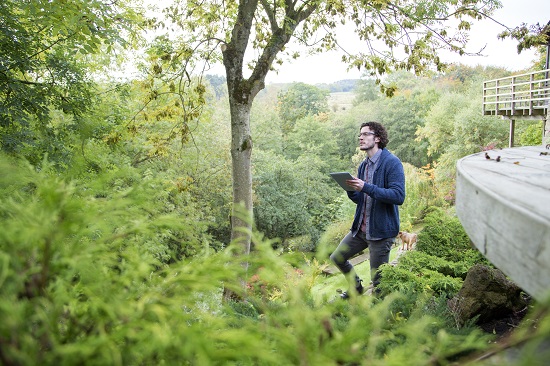News
Showcasing Defra’s R&D Programme
- Details
- 18 January 2023

Around 100 plant health professionals attended the fourth plant health series event, funded by Defra, discussing Defra’s R&D Programme. The event explored how research needs are being met before hearing from several plant health professionals whose research projects are funded through this programme.
The event was chaired by Dr Geraint Parry, executive officer of the Association of Applied Biologists, who introduced the keynote speakers: Clare Trivedi, Dr Bianca Ambrose-Oji, Dr Rachel Down, John McLaughlin.
First to speak was Clare Trivedi, plant health R&D manager at Defra, who discussed potential pest threats screened through the UK Plant Health Risk Register. She examined the immediate impacts of pest and diseases, noting if not managed they will affect a large number of sectors and that climate change and an increase in trade and travel will increase pathways of transmission.
John McLaughlin from the Future Trees Trust then spoke about The Living Ash Project, which aims to identify a large and diverse number of ash trees with good tolerance to ash dieback (Hymenoscyphus fraxineus) to secure this material for further breeding work.
He discussed testing tree selections via liquid chromatography–mass spectrometry and controlled inoculations, emphasising that there is a need to increase R&D into cuttings.
Afterwards, Dr Rachel Down from Fera Science Ltd, examined preparedness in biological control of priority biosecurity threats, using a Euphresco project as a case study.
The project was set up to establish a biological control network to share knowledge and information on priority biosecurity threats and biological control agents, to increase preparedness for incursions of invasive invertebrate species.
The project partners work together to develop and draft a decision framework and an associated guideline document to assess the feasibility of starting pre-emptive risk assessment of classical biological control agents.
Lastly, Dr Bianca Ambrose-Oji, principal social scientist for the Society and Environment Research Group, outlined the necessity for co-designing for tree health. Co-designing is an approach that actively involves users and stakeholders from the beginning of a project, right through to completion.
She noted the importance of building understanding between policy, research, land managers about policy options supporting management of tree pests and diseases.
Furthermore, she stressed that it is necessary to co-design with land managers’ policy options that incentivise or support them to respond to specific tree pests and diseases, and restock for diversity and resilience after an outbreak. In addition, she emphasised the need for understanding how social networks, and what advice or other information, might support land managers act and respond appropriately to particular pathogens.
The event ended with an audience Q&A and discussion, chaired by the RSB's Cara Froggatt MRSB, where speakers discussed how priority pests are chosen and the ways networks are maintained after a project has concluded.
Previous events in the plant health series include a keynote from Dr MaryLucy Oronje, sanitary and phytosanitary (SPS) scientist at the Centre for Agriculture and Bioscience International (CABI) on crop pest management in Africa.
A recording of this event will be available on the RSB YouTube channel.

